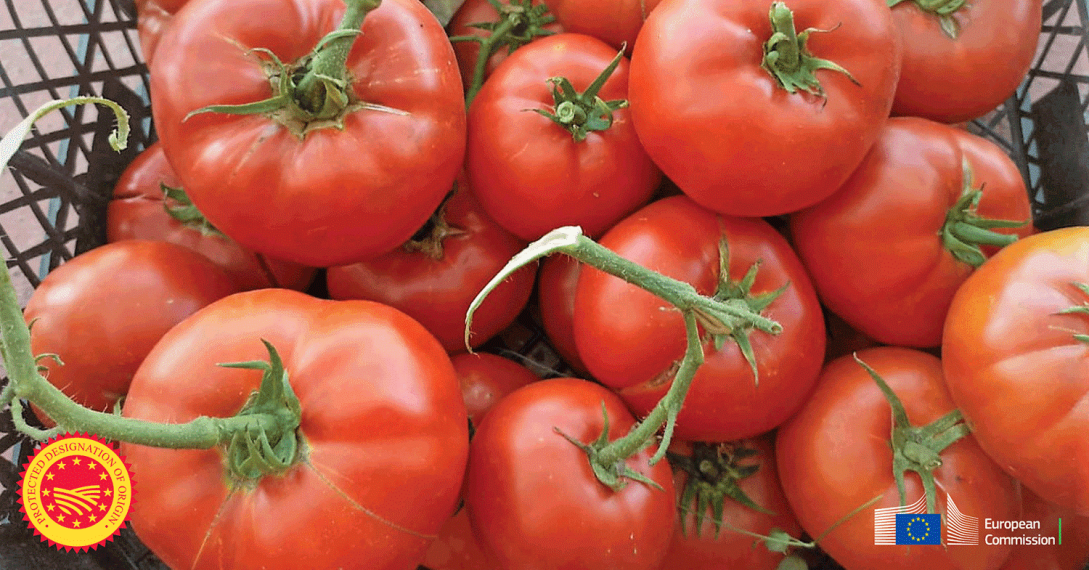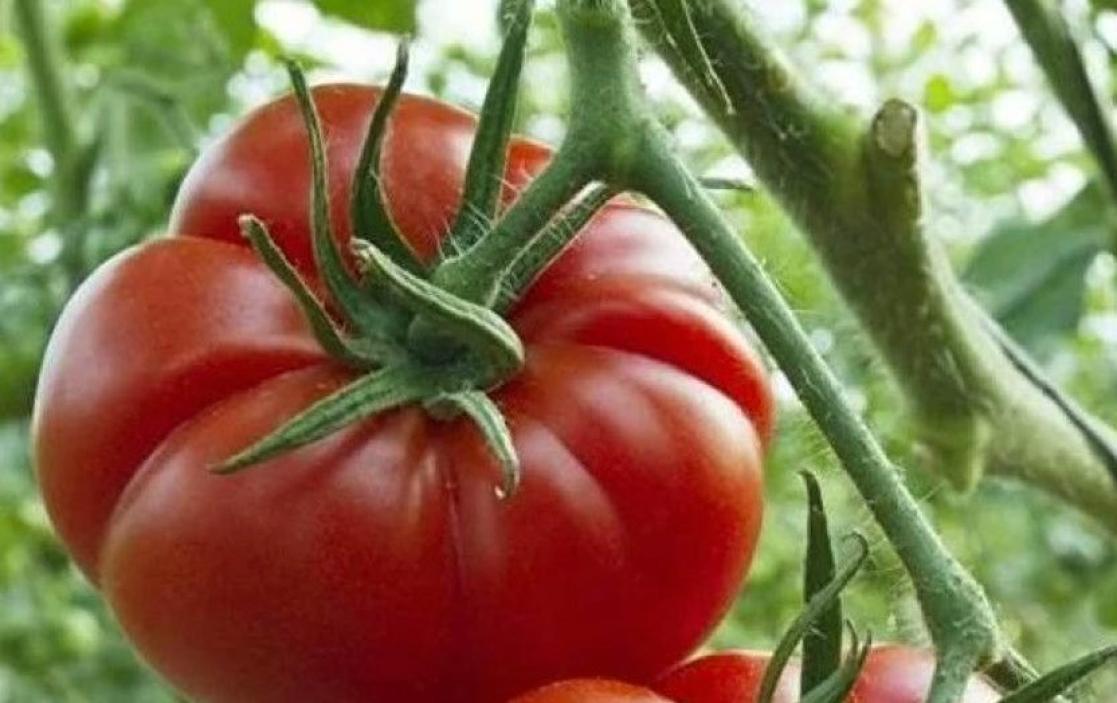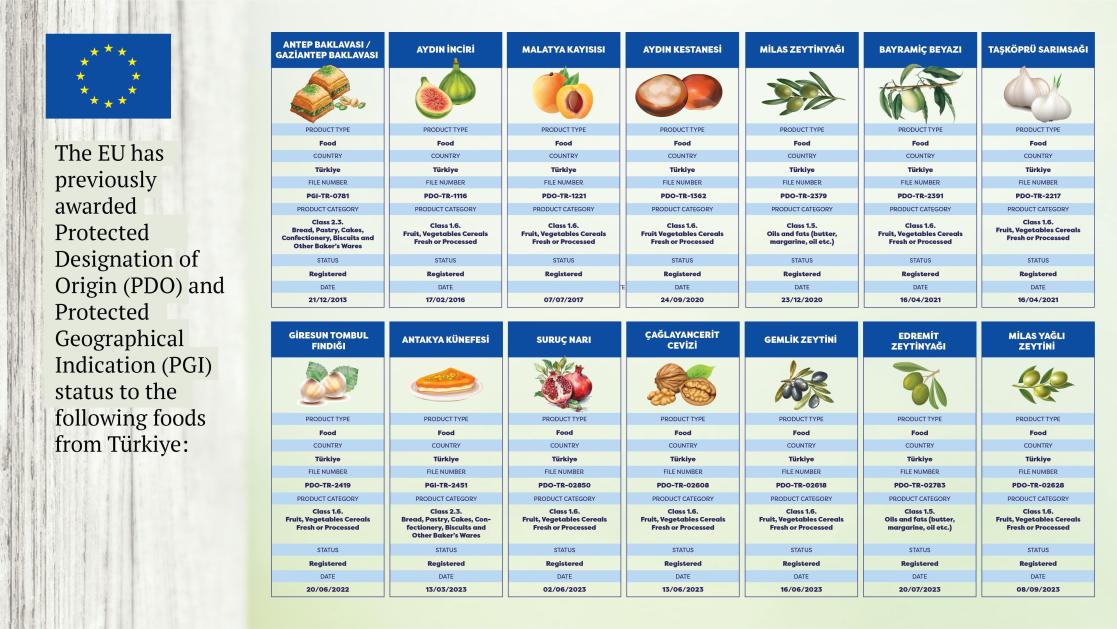“Ayaş Domatesi” tomato of Ankara wins EU recognition

A large-sized, very juicy and fleshy tomato, it differs from other tomatoes grown in Türkiye with its thin skin, dull pink-red colour and ridges on the outer surface of the tomato. A white patch can be seen on the flesh when the fruit is split in two. The tomato, which has a slightly salty and lemony aroma due to its high acidity, is consumed both for table and industrial use depending on the planting interval of the seedlings.
The Head of the EU Delegation to Türkiye, Ambassador Nikolaus Meyer-Landrut, says: “The recognition will not only inspire producers in various districts within Ankara and neighbouring provinces but also play a pivotal role for both producers and consumers. While the producers will give confidence to the consumers with the protected designation of origin, the consumers will know that they are getting a genuine product when they see the logo. The EU registration will ensure the safeguarding of ‘Ayaş Domatesi’ name, protect producers and consumers and increase its recognition in Türkiye and beyond.”

It differs from other tomatoes grown in Türkiye with ridges on the outer surface of the tomato
The “Ayaş Domatesi” variety has been cultivated in Ayaş since the 1960s. The fruit’s shape and structure are derived from local seeds and seedlings transmitted through generations within the geographic area. Ayaş differs from the rest of the Central Anatolia Region’s climatic characteristics and shows microclimatic characteristics; this climate provides the most suitable conditions for pollination and fruit development.
“Ayaş Domatesi” has become the first product name registered by the EU as a geographical indication in Ankara province. The application process was conducted by Ayaş Chamber of Agriculture.
Noting that “Ayaş Domatesi” tomato is produced from ancestral seeds, Erdinç Polat Ateş, the President of the Ayaş Chamber of Agriculture, says: “Our tomatoes are already known all over Türkiye. Thanks to the registration in EU as protected designation of origin, it will now be recognised in Europe. In addition, this registration will also prevent the extinction of ‘Ayaş Domatesi’ tomato. We are delighted to have received this geographical indication.”

Mustafa Sezer, the Mayor of Ayaş Municipality
Mustafa Sezer, the Mayor of Ayaş Municipality, is one of the people who are happy because of the news of getting the geographical indication. Stating that the district yields both tomato seedlings from seeds and mature fruits from those seedlings, he says: “‘Ayaş Domatesi’ takes its place in the bazaars in the summer months, and this tomato is also exported. I believe that our tomato will take place in a wider market network in the summer season with the EU geographical indication.”
The producers in Ayaş are also happy with the development of this delicate fruit. Hasan Dikmen, the producer, reflects: “Our tomato is delicious, but it is not durable because it has thin skin. It's very delicate. The enthusiasts of this tomato come from Ankara to Ayaş and buy it. I think sales will increase with the EU geographical indication.”
Recep Sözen, the other producer, speaks smiling: “We grow our tomatoes and sell them in front of our house. ‘Ayaş Domatesi’ tomato is very precious from an ancestor seed. The taste is slightly sour and very delicious.”
According to Kezban Sözen, another producer, “the sales will increase. It would be best if you ate ‘Ayaş Domatesi’ tomato as soon as you picked it from the field. Also, its paste and salad are tasty.”

The EU has previously awarded PDO and PGI (protected geographical indication) status to other product names from Türkiye: “Antep Baklavası / Gaziantep Baklavası”, “Aydın Kestanesi”, “Aydın İnciri”, “Bayramiç Beyazı”, “Malatya Kayısısı”, “Milas Zeytinyağı”, “Taşköprü Sarımsağı”, “Giresun Tombul Fındığı”, “Antakya Künefesi”, “Suruç Narı”, “Çağlayancerit Cevizi”, “Gemlik Zeytini”, “Edremit Zeytinyağı”, and “Milas Yağlı Zeytini”.





